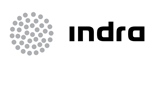Project Description
SeaBILLA is based on the requirements for maritime surveillance defined by experienced end users. The requirements have been transformed into three representative scenarios of maritime border surveillance issues, and the possible opportunities for a fruitful exchange of information between the various Member States. The scenarios considered are the following:
- La Mancha Channel.
- Mediterranean.
- Atlantic Area: Canary Islands and the Azores region.
The project will consist of the following activities:
- Analysing the characteristics of the three maritime scenarios selected, with the resulting user cases that will be the basis for developing the subsequent project phases.
- Defining the systems architecture with cost optimisation for maritime surveillance, integrating space, land and sea elements, and including existing systems.
- Using technologically advanced solutions to increase surveillance functions.
- These solutions will belong to the various space, land, sea and air segments.
- Developing and demonstrating significant improvements in detection, monitoring, identification and automatic behaviour analysis, including the detection of ships at high sea and near the costs.
- Developing demonstrations and adapted tests for the selected user cases. In this phase, it will be very important for the end user to validate the tests.
- Distributing results and organising workshops.
Collaborating Companies or Organisations










Indra's Role
Indra Sistemas is responsible for the Atlantic scenario.
Indra will also coordinate the work packages for behaviour analysis as well as planning and organising the demonstrations.
Indra Espacio will participate in the following activities:
- Defining the Maritime Border Surveillance scenarios according to prior experiences at the Canary Islands and new interactions with end users.
- Developing innovative techniques for improving maritime border surveillance capacities, land observation satellites, and remote sensing technologies.
- Contributing to and supporting the planning and organisation of tests, the operations plan and standardisation.
Universities and Technological Centres







Technologies used
The Seabilla project will study various technologies that will improve the existing maritime surveillance systems in each of the scenarios.
The technologies include: radars, unmanned air systems, passive sensors, satellite systems, data fusion, behaviour analysis, etc.
More information
This project has received funding from the European Union’s Seventh Framework Programme for research, technological development and demonstration under grant agreement no FP7-241598
